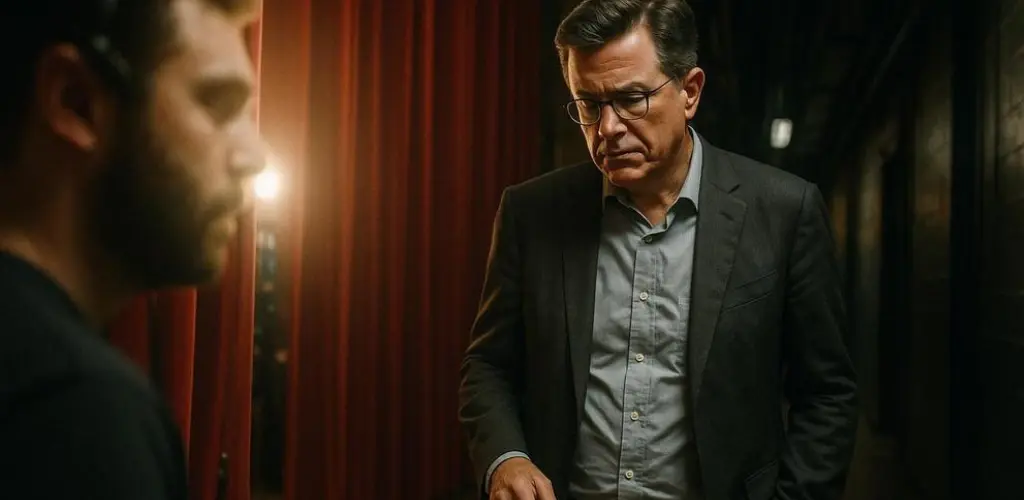CBS’s decision to end The Late Show with Stephen Colbert marks a seismic shift in late-night television, effectively closing the curtain on one of New York City’s most iconic media legacies. The network confirmed on July 17, 2025, that the 2025–2026 season will be the program’s final run, with the last episode slated for May 2026. The move not only puts an end to Stephen Colbert’s celebrated 11-year tenure but also retires The Late Show franchise entirely after more than three decades at the historic Ed Sullivan Theater.
Colbert’s Exit Signals End of an Era
Colbert, who took over from David Letterman in September 2015, brought political satire and cultural critique to the late-night stage, redefining the CBS lineup during a tumultuous political period. His version of The Late Show soon became a ratings powerhouse, positioning itself as a progressive voice in the fraught landscape of American media.
The Ed Sullivan Theater, located on Broadway in Midtown Manhattan, has been the home of The Late Show since 1993. First hosting Letterman, then Colbert, the theater dates back to 1927 and has been a CBS broadcast venue since 1936. It etched its name in television history with landmark broadcasts of The Ed Sullivan Show, which introduced The Beatles and Elvis Presley to a mass American audience.
“Purely Financial,” Says CBS Amid Corporate Turmoil
CBS executives described the decision as a “purely financial one”, denying any links to content or Colbert’s recent commentary. The cancellation occurs amid a broader wave of cuts across late-night programming, exacerbated by declining linear TV viewership and rising production costs.
Paramount Global, CBS’s parent company, faces increasing financial strain and is currently navigating an $8 billion merger deal with Skydance Media—a transaction that still awaits Federal Communications Commission approval. The scrutiny around this potential deal, paired with a shifting digital media landscape, has added pressure to legacy television properties considered high-cost and low-growth.
Colbert may have heightened tensions within the corporate hierarchy just days before the announcement, when he used his July 15 monologue to denounce CBS and Paramount for a reported $16 million payment to former President Donald Trump, resolving a lawsuit related to a controversial 60 Minutes interview. Colbert called the settlement a “big fat bribe,” a criticism that gained wide attention across political and entertainment circles.
Audience Reacts with Shock and Protest
The cancellation came as a surprise to much of the public—and even to Colbert’s own audience. During his live taping on July 17, Colbert informed attendees of the show’s fate. The response was immediate and visceral: boos, gasps, and visible dismay echoed through the Ed Sullivan Theater.
Social media erupted with reactions ranging from confusion to outrage. Fans mourned the likely loss of the late-night format that Colbert had revitalized with thoughtful interviews, comedic acumen, and impassioned monologues about democracy, media, and popular culture.
Industry Stunned as Colleagues Speak Out
Reactions from the entertainment community emphasized both Colbert’s impact and the broader implications for late-night television.
- Andy Cohen called the decision a “gut-punch” to New York’s entertainment identity.
- Judd Apatow praised Colbert’s voice as unique and necessary, emphasizing the loss to public discourse.
- Katie Couric expressed concern over a lack of transparency, urging CBS to give viewers and staff “the full story.”
Not everyone reacted with remorse. Former President Donald Trump celebrated the news on social media, calling Colbert’s departure overdue and mocking his ratings. Trump also speculated that other late-night hosts may soon follow suit—a comment widely perceived as politically charged.
Strategic Exit or Endangered Format?
The retirement of The Late Show franchise is not occurring in isolation. NBC has reportedly scaled back production of The Tonight Show, and other networks are reconsidering the cost-benefit equation of traditional late-night formats.
Streaming platforms and social media have chipped away at the audience base for scheduled late-night programming, particularly among younger demographics. As viewers shift toward on-demand content, network executives face tough choices about what franchises to retain—or retire.
“This isn’t about performance, this is about power and money,” one unnamed network executive said, emphasizing the economic pressures defining today’s television landscape.
Legacy at the Ed Sullivan Theater
As CBS prepares to dim the lights on The Late Show, it also winds down nearly 100 years of theatrical and broadcast history inside the Ed Sullivan Theater. Originally opened as Hammerstein’s Theater in 1927, it became a CBS property by 1936 and served as the backdrop to seminal television moments.
For over three decades, the theater was synonymous with The Late Show, first under Letterman and then Colbert. Renovations under Colbert’s tenure—which included restoring stained-glass windows and its original architectural dome—reflected a reverence for both television history and the cultural primacy of Broadway’s broadcast corner.
What Comes Next
With the final installment scheduled for May 2026, CBS has not announced a successor for the time slot. Executives have neither confirmed a replacement program nor clarified whether live programming will continue from the Ed Sullivan Theater after Colbert’s departure.
Though CBS offered high praise for Colbert in official statements—calling him “irreplaceable” and lauding his multiple Emmy-winning run—the network has made clear its decision is final. As a new generation increasingly consumes entertainment through TikTok, YouTube, and subscription platforms, Colbert’s departure may not just mark the end of a show, but the sunsetting of an entire broadcast tradition.
The metaphor feels fitting: As the stage lights prepare to dim on Broadway, late-night’s place in America’s collective living room may flicker—to be replaced not with silence, but with something else entirely.



